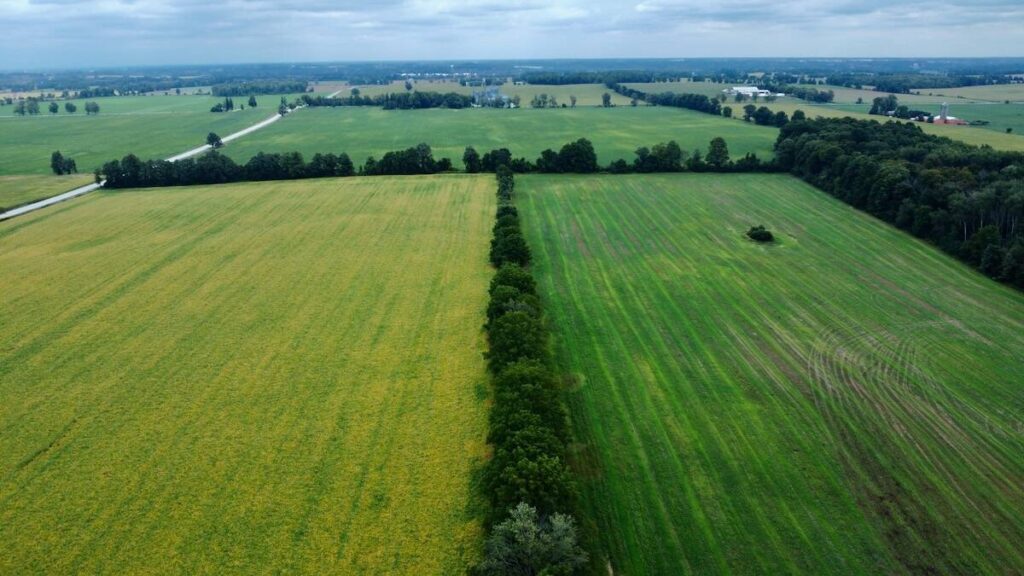Ford’s controversial Bill 5 under fire for weakening safeguards

Premier Doug Ford’s proposed Protect Ontario by Unleashing our Economy Act, 2025 (Bill 5) has garnered swift opposition.
Positioned as a tool to stimulate economic growth through reduced regulatory barriers, critics argue that the omnibus bill poses risks to the democratic processes, environmental protections and Indigenous rights.
Public consultation for the contentious bill closes on May 17, with environmental groups, Indigenous communities, agricultural associations and the public hoping significant opposition will give the government pause.
Read Also
Premier Equipment expands John Deere dealership with acquisition in Belleville
Premier Equipment has acquired the John Deere dealership business of Deerhaven Farm and Garden Ltd. Based in Belleville, Deerhaven Farm…
WHY IT MATTERS: Although not specifically targeted, the proposed legislation could increase farmland development pressure and expose it to increased environmental risks.
Drew Spoelstra, president of the Ontario Federation of Agriculture, said the association continues to emphasize to the agriculture and housing ministers and the Premier’s office the importance of long-term sustainability for Ontario’s agriculture and farmland protection.
“I think that there’s no better case for ‘special economic zones’ than farmland,” said Spoelstra. “We’re already leading the way in terms of GDP in the province in terms of employment as well. Ensuring that agriculture is a sustainable, viable business going forward (goes) a long way to supporting the government in their efforts.”
Bill 5’s introduction of special economic zones (SEZs), decreased public participation and oversight, and the consolidation of ministerial powers to override existing regulations and accelerate project approvals are concerns for those wanting to protect farmland.
Spoelstra said the provincial desire to expedite infrastructure projects, including homes, could assist farmers in securing permits to expand their operations by removing municipal roadblocks.
“There’s that balance that needs to be struck between moving forward in an efficient manner and making sure the right processes are in place to ensure everyone’s protected,” he said.
Spoelstra said that the provincial planning statement emphasizes the need for agricultural impact and environmental assessments, broad community consultation, and encourages municipalities to explore alternative areas before developing prime agricultural land. OFA advocates for maintaining these principles, along with long-term planning and established processes; however, he acknowledged that the government is trying to roll back these procedures.
During the May 1 debate on Bill 5, Sudbury’s Ontario NDP MPP Jamie West said about one per cent of the bill addresses the “one project, one process” mining approval model; the rest undermines the environment and endangered species protections.
Given the benefits mining provides to his riding, West said he’d support the bill if it weren’t forged “to reward his (Ford’s) wealthiest donors, and the people of Ontario should be frustrated, and angry and upset.”
“Nobody in the world needs 229 pages to say, ‘A ‘one-project, one process’ approval model, streamlining the approvals, with a dedicated team to help things be more efficient’—but you do need 229 pages if you want to scrap the Endangered Species Act,” said West. “You need 229 pages if you want to ensure that your donors can open a dump in Lambton–Kent–Middlesex. You need those 229 pages if you want to pretend that Ontario Place somehow is part of mining. I have been to Ontario Place. I don’t remember anyone mining there. You need 229 pages if you want to write a cheat code so you can magically call anything you want a special economic zone, and you can ignore or rewrite bylaws and legislation.”
West alleges the bill allows a loophole via a “special economic zone” cheat code, enabling the province to evade the RCMP’s ‘opening of the Greenbelt’ investigation and sidestep the Wilmot farmers’ efforts to protect agricultural land, including permitting a 95-year lease of Ontario Place, alongside $2.2 billion in funding, to a questionable company that misrepresented its assets.
“Honestly, Speaker, this 229-page omnibus bill is technically about mining in the same way that my hair is technically curly,” said the bald Sudbury MPP. “It’s true; I’m not lying about it, but I’m not telling you everything, and I’m hiding a lot from you.”
Stephen Palmateer, co-chair of the Wilmot Civic Action Network, said Bill 5 enables Premier Doug Ford and his cabinet to bypass democratic legislative decision-making, ignore existing municipal and provincial laws, and grant exemptions to select individuals and companies throughout Ontario.
“(The Bill would) give these “trusted proponents” the authority to undertake projects with exemptions from any law, including the Planning Act, the Environmental Protection Act, the Endangered Species Act, the Occupational Health and Safety Act, the Highway Traffic Act, even the Trespass to Property Act, for any purpose whatsoever,” he said.
This trend underscores the Ford government’s preference for well-connected individuals and private corporations over public welfare and citizen rights, said Palmateer, and resembles authoritarian SEZ practices witnessed in China and dictatorial third-world countries.
He surmised that opposition to the bill is growing; it currently lacks the widespread power of voter opposition that prompted the rollback of the Greenbelt land grab.
Allowing Premier Ford unprecedented power could increase benefits to Ontarians, but Palmateer said it’s more likely to lead to detrimental and destructive results.
“Has he given us any reason to believe that (it would benefit Ontarians)?” questioned Palmateer. “Given his track record, we must assume the opposite.”
Shane Moffatt, Ontario Nature’s conservation manager, said on April 28 that the proposed Bill 5 would eliminate the Endangered Species Act, escalating efforts to weaken endangered species protections, including logging industry exemptions and “pay-to-slay” provisions; create ‘special economic zones’ exempting developers from provincial regulations, and disregard Indigenous Peoples’ rights to free, prior and informed consent.
“If anything, Premier Ford should strengthen endangered species protection so wildlife can flourish and communities can benefit from conservation,” he said, adding that building strong local economies in harmony with nature doesn’t stop all development.
Regardless of how Ford spins the bill, he wrote that bulldozing endangered species protections will unleash more problems because healthy forests and water are required to sustain all Ontarians.
“A handful of developers will rake in short-term profits,” Moffatt stated. “Leaving the bill for the rest of us. We all rely on a healthy environment.”
Source: Farmtario.com


